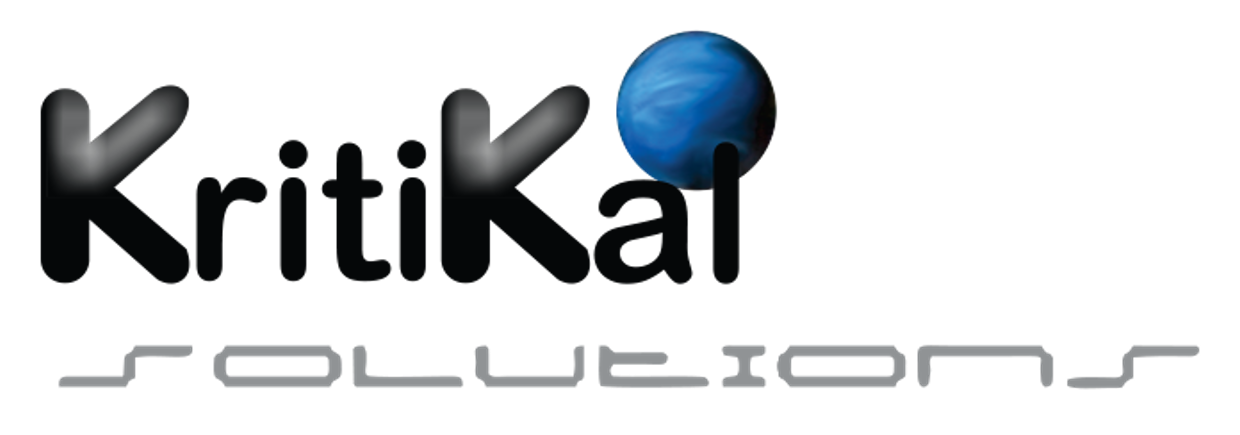What is AI Medical Diagnostics?
The process of medical diagnostics includes evaluation of diseases, medical issues, or conditions through thorough analysis of symptoms, laboratory testing, and the patient’s medical history to determine the cause and provide the necessary course of treatment in time. This can be done through diagnostic imaging tests such as Magnetic Resonance Imaging (MRI), Computed Tomography (CT) or Computerized Axial Tomography (CAT), Positron Emission Tomography (PET), Single-Photon Emission Computed Tomography (SPECT), ultrasounds, X-rays, Dual Energy X-ray Absorptiometry (DEXA) scans, biopsy, blood tests, etc. Furthermore, such MedTech solutions are used to track and address disease progression, evaluate ongoing treatment plans, and assess whether the diagnosed diseases are chronic or serious in nature.
This field particularly involves achieving accurate results in an efficient manner, and the levels of the same are being revolutionized through the integration of Artificial Intelligence (AI). Advanced technologies such as Deep Learning (DL), Machine Learning (ML), Agentic AI solutions, Natural Language Processing (NLP) algorithms, Large Language Models (LLMs), and Large Multimodal Models (LMMs) are leveraged by AI for detecting, analyzing, diagnosing, and treating various diseases, thus transforming day-to-day medical diagnoses.
It provides precise, valuable, and in-depth insights to healthcare providers and medical practitioners by processing huge amounts of patient data within a limited timeframe, especially when the model is trained using Quantum AI development services (QAI) and Generative AI services. The multimodal data may include demographic information, textual representations of lab results, comorbidities, two- or three-dimensional images, biological signals such as Electrocardiogram (ECG), Electroencephalogram (EEG), Electromyogram (EMG), Electronic Health Record (EHR), medical history, and vital signs such as respiration rate, body temperature, pulse rate, blood pressure, etc. This assists them to realize early detection using Explainable AI (XAI) features, make informed decisions using the AI-enabled Clinical Decision Support System (CDSS), and devise personalized treatment plans for patients accordingly.
The value of the medical AI diagnosis market stands at US $4.56 billion as of 2025 and is forecasted to surge up to an approximate value of US $60.32 billion by 2033, expanding at a CAGR of about 44.58% during this period. Let us now delve further into this blog to explore various use cases of computer vision and image processing services, applications, advantages, and challenges of implementation of AI in clinical and medical diagnostics.

Source: Market.us
Growing market size of AI assisted medical diagnosis during the 2023 to 2033 forecast period
Features of AI-based Medical Diagnosis Solutions
Given below are sample features of medical diagnostic solutions powered with artificial intelligence.
1. Risk Analysis: The AI-enabled systems thoroughly assess the given patient data, showcasing details such as age, severity of symptoms, level of abnormalities, chronic conditions, infection levels, and calculate intended outcomes and potential risks.
2. Real-time Alerts: Medical practitioners and all related staff receive immediate notifications on their devices in case any drastic change is observed or predicted in the state of health of a high-risk patient.
3. Data Extraction: A medical AI diagnosis system can swiftly and accurately process vast amounts of clinical data obtained from EHR records, wearable technology design, laboratory test results, and other sources to proceed with further diagnostic analysis.
4. Automated Reports: All clinical details, such as key findings, abnormalities, test results, predicted diagnoses, intended treatments, and highlighted affected areas, are automatically assessed and collated in a comprehensive report that can be accessed by medical professionals through intuitive dashboards.
5. Enhanced Security: These solutions empower diagnostic and therapeutic equipment and adeptly secure patient data using features such as role-based access control, multi-factor authentication, and data encryption. This is for compliance with regulations in healthcare like the Health Insurance Portability and Accountability Act (HIPAA), General Data Protection Regulation (GDPR), Food and Drug Administration (FDA) regulations, Conformité Européenne (CE), International Organization for Standardization (ISO) 13485, International Electrotechnical Commission (IEC) 62304 markings, Systems and Organizational Controls 2 (SOC Level 2), Health Level 7 Fast Healthcare Interoperability Resources (HL7 FHIR), etc.
6. Pattern Recognition: The AI-powered systems utilize ML models like Convolutional Neural Networks (CNNs) to predict health conditions, wound healing outcomes, and diseases in patients through robust pattern identification.
7. Image Generation: Alongside textual AI findings from radiological images, AI based medical diagnosis systems can contour abnormal areas in overlaying Digital Imaging and Communications in Medicine (DICOM) images upon integration with Picture Archiving and Communication System (PACS).
8. Quality Assurance: AI-driven systems can pinpoint drug-related errors that may have occurred or are likely to happen so that better safety protocols can be put in place for delivering value-based care. Software like Heidi Health and Osiris AI also ensure, through NLP-powered feedback collection, text mining, sentiment analysis, machine translation, and speech recognition, that services of utmost quality are rendered.
9. Decision Making: Clinicians are no longer required to conduct extensive research on conditional keywords that may be time-consuming, rare, and difficult to diagnose, like determining the exact stage of diabetic retinopathy. AI-powered chatbots and rule-based expert systems like Google’s DeepMind Health can immediately provide them with access to global information present on indexed databases such as Scopus, EMBASE, PubMed, Medline, etc., regarding treatment regimens and similar cases.
Use Cases of AI Medical Diagnostics
Given below are some of the use cases of the integration of artificial intelligence in the field of medical diagnostics.
Lab Results
Patterns that are usually observed in certain rare diseases and hence obtained abnormalities in test parameters are detected by ML algorithms, which also generate potential diagnoses.
Vital Parameters
Any type of abnormality or related pattern in vital signs obtained from medical devices or through wearable app development is analyzed in large amounts, such as multiparameter patient monitors, capnography monitors, pulse oximeters, blood pressure monitors, etc.
Patient Records
Electronic health records are thoroughly analyzed for patterns in symptoms, causes, diagnoses, and treatment, especially in cases where patients are suffering from multiple conditions like latent, extrapulmonary, drug-resistant tuberculosis, or in the case of hair loss diagnosis.
Biomarkers
AI systems can detect adverse mental health conditions at early stages by analyzing vocal biomarkers such as pauses in speech, tone, patterns, pitch, and other changes that may indicate cognitive or emotional stress.
Diagnostic Imaging
AI utilizes image processing, segmentation, classification, quantification, etc. to highlight abnormal parameters and affected areas in radiological images that may remain unobserved by professionals.

Table showcasing various techniques of AI based medical diagnosis
Telemedicine
AI has powered remote diagnostics through processing and analysis of high-resolution images. It detects small changes over time that may lead to further complications in the patient’s health. AI-powered telemedicine mobile app allows timely interventions in remote regions with restricted access to medical attention.
Personalized Outreach
AI assisted medical diagnosis systems with EHRs, and drug formulation techniques can lead to the identification of various risk factors, trends, patterns, and provide recommendations and insights to clinicians. This leads to proactive intervention, enhanced treatment selection, dose optimization, and effective therapeutic drug monitoring via integration of medical device design services, especially if any high-risk condition is involved.
Drug Discovery
AI-powered drug discoveries involve ML algorithms analyzing extensive datasets on chemical compounds and genetic information. This helps in measuring the efficacy of the drug in different populations and identifying potential candidates for drug testing.
Patient Profiling
These systems can obtain information on mutation, genomic analysis, and more to tailor oncological treatments for increased efficacy, lowered side effects, and enhanced drug discovery. As per geological information and historical patient data, these can assess, stratify, and devise proactive measures for vulnerable groups such as children against malarial outbreaks or heart rate conditions. The systems can predict the likelihood of post-operational sepsis or opioid dependency for strategizing safety measures.
Administration
These systems automate mundane tasks, including textual data entry as per diagnosed conditions, scheduling appointments, processing health insurance claims, and summarizing with the help of AI for medical imaging results for faster reviews. AI and medical diagnosis together save radiologists’ and clinicians’ time, grant them autonomy over the workflow process, leading to better focus on their patients, delivery of quality care, and management of revenue cycles and insurance claims in an efficient manner without denials and overheads.
Genomic Medicine
AI/ML-powered genotype analysis, phenotype predictions, and diagnostics can result in effective monitoring of emerging threats such as COVID by gaining valuable insights into genetic makeup, variations, and markers associated with disease susceptibility.
KritiKal: Powering Innovative Diagnostics
KritiKal Solutions develops advanced AI-enabled systems that can assess multimodal medical or patient data such as radiological images, textual summaries of feedback or research, vital signs, parameters, and signals received from monitoring, diagnostic, or wearable health monitoring devices, audio interactions, etc. We have eased retrieval of richer clinical insights and improved diagnostic accuracy of various chronic medical conditions, therefore resulting in reduced errors and continuous support provision through consistent code mapping (LOINC, SNOMED etc.), prospective pilot runs, ETL pipelines, RBAC, audits, concordance metrics, clinician feedback collection, fairness monitoring, transit and rest encryption, governance reviews, etc.
Our range of solutions also includes explainable AI for in-depth understanding of diagnosed results and other services that easily automate mundane tasks while complying with regulations. We have assisted various SMBs, MedTech startups, and Fortune 500 companies in developing AI-based solutions like lung X-ray scanning for COVID and pneumonia detection, fetal ultrasound analyzer, mammogram tool for AI breast cancer detection, low-dose imaging, three-dimensional guidance for assisted orthopedic procedures, embryo grading platforms, nasal mucosa analysis for allergy severity assessment, precision endoscope imaging, hybrid AI-enabled system for explainable AFib detection, electric muscle stimulation device, and much more.
The need for the hour is a wider collaboration between governments, the healthcare industry, medical professionals, and AI system providers so that such advanced tools can be seamlessly integrated and made accessible in underserved regions. Advancements in AI and medical diagnosis can lead to precise treatments, better population outcomes, and early interpretation of health-related conditions.
Let us assist you in realizing its potential and effective adoption of healthcare AI while addressing and overcoming commonly observed challenges in ethics, safety, trust, reliability, fairness, regulatory issues, model maintenance, bias, privacy constraints, interpretability, drift, etc. We look forward to getting in touch with you at sales@kritikalsolutions.com to showcase our products, solutions, services and to realize your AI-powered MedTech requirements.

Richa Rastogi currently works as a Global Software Development Engineer at KritiKal Solutions. She is proficiently skilled in working with technologies such as Azure Active Directory, PowerShell Azure Cloud, Flexera, Major Incident and Mobile Device Management through Microsoft Intune, VMWare Intelligent Hub, and more. With her ability to work efficiently in teams and extensive experience of working with software development, she has assisted KritiKal in delivering various projects to some major clients.




 Global
Global  United States
United States 

